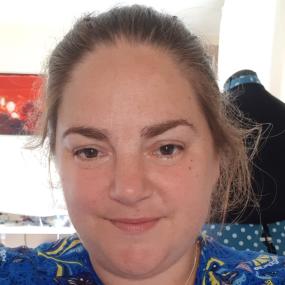Starting the WICMEL programme

Emily is a current WICMEL Programme Fellow. She is in her third year as an Intensive Care and Anaesthetics consultant at the Royal Devon and Exeter hospital. Her interests at work include obstetric critical care, organ donation and trainee support and education. Outside work, these include making things from clothes to casseroles, and walking on the moors or the coast path in all weathers (@emh102).
I am having a WICMEL day today. I am currently preparing to chair my meeting, a focal part of the Emerging Leadership Programme and an opportunity to hone my skills, thinking about the conduct of a meeting as much as its content. Another part of the programme has been attending meetings of FICM and its subcommittees. This has given us the chance to watch expert chairs like @AlisonPittard and to see what skill is required to manage virtual meetings – ensuring the pace is set, that everyone gets to speak up and that the outputs and actions are clear for all to see. Understanding more about the business and machinations of the Faculty has also been fascinating.
The focus of both my meeting and the previous one (chaired by Dr Laura Coleman @laurac113) has been on work-life balance and how this influences and affects us as leaders. The first meeting was lively and thought provoking, and gave us a basis for our group to learn from and with each other. I have had the chance to bounce ideas for my meeting off my mentor @dannythebaker. As Vice Dean of the Faculty, Dr Danny Bryden giving up her time to develop me as a leader is such a privilege and one for which I am very grateful. This access to someone who is such a strong leader, strong advocate for inclusion in ICM and strong presence in the Faculty is a wonderful opportunity and she has helped me very much in working out how my career might progress over the next few years.
When I have sent off the agenda for my meeting, I am going to sign in to my Open University module ‘Developing your leadership style’ and put in a few hours work on that. This course is not an academic treatise, but gives some theoretical framework for leadership in practice, and the time to reflect on one’s own leadership skills and style. It isn’t too onerous and always gives me plenty to think about. I am then going to go out for a long walk to take advantage of the lovely weather and my last day off before working at the weekend.
In deciding to apply for the WICMEL programme I had terrible feelings of inadequacy and imposter syndrome. I had no grand leadership ambitions and thought that it was too high-powered for me. After seeing it mentioned several times on social media, I contacted Dr Liz Thomas, the WICM Chair and she was kind enough to talk to me about the programme and why it wasn’t a problem that I had no current plans for world domination. I want to be the best I can be at my job, to provide the best support I can for my team, my trainees, my unit. To do so I have to acknowledge and embrace my leadership role. This isn’t something that we get much guidance about in training and to have the opportunity to learn from those who have gone before us is brilliant. This was the opening paragraph of my application to join, and I can say confidently that it is more than meeting my expectations
“Now in my second year as an Intensive Care consultant, I have become more comfortable with the day-to-day clinical work and have acquired a number of additional roles which are allowing me to increase my responsibilities both in my unit and the wider hospital. While I feel capable in my clinical role, the idea of myself as a leader is still somewhat overwhelming, and I hope that this programme will give me the tools and confidence to better manage my non-clinical duties.”
My other anxiety about applying for the programme this year had been how little face to face contact we were likely to get – I worried that this would diminish the potential benefits it could offer. I now see it’s virtual nature as a positive. Online meetings are here to stay and learning how to manage them well is a real skill. The technology to allow us to connect with each other is all there and familiar to us all now. Our WICMEL WhatsApp group has included updates on conferences, holiday pictures and job whinges. We also live all over the country and I would never manage regular real life meetings with Danny in Sheffield. It will be nice when we do all get to meet up in person though.
So in summary, the WICMEL programme has been something else to fit into a busy job (so has a short term impact on my work-life balance), but it has been a wonderful opportunity to develop me as a leader and to interact more with the Faculty and other new consultants in a similar position to me. It is something I would heartily recommend it, especially to those who feel they would not be right for the programme. If anyone has any questions about it, do feel free to contact me.
